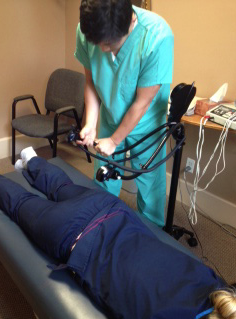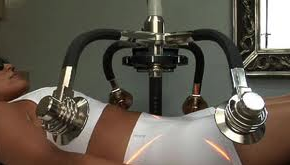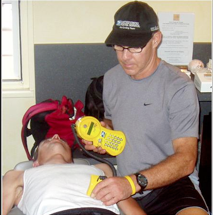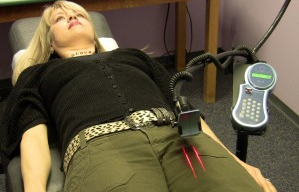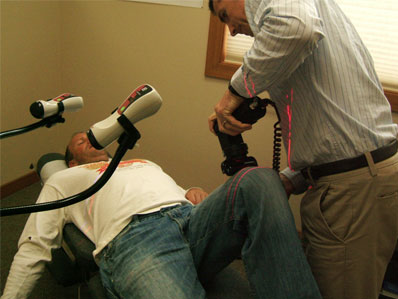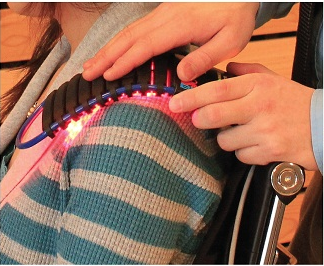Categories
Essays
Links
Author Archives: James Carroll
Low Level Laser (LLLT) “regenerates teeth”
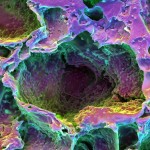 TV, radio and newspapers all over the world got very excited last week reporting that “laser regenerates teeth” following a Harvard study. The study showed that LLLT stimulates the stem cells resident in the tooth pulp to form dentin (for details click below). This is the highest profile announcement for any LLLT paper ever and will add significant awareness and credibility for everyone in the field. Congratulations and huge thanks to the author Dr Praveen Arany B.D.S., M.D.S., M.M.Sc., Ph.D. who is now a Clinical Investigator at NIH.
TV, radio and newspapers all over the world got very excited last week reporting that “laser regenerates teeth” following a Harvard study. The study showed that LLLT stimulates the stem cells resident in the tooth pulp to form dentin (for details click below). This is the highest profile announcement for any LLLT paper ever and will add significant awareness and credibility for everyone in the field. Congratulations and huge thanks to the author Dr Praveen Arany B.D.S., M.D.S., M.M.Sc., Ph.D. who is now a Clinical Investigator at NIH.
Posted in THE FUTURE OF PBM/LLLT
on Low Level Laser (LLLT) “regenerates teeth”
THOR Literature watch for December 2013 LLLT Low Level Laser Therapy
28 papers for December 2013 starting with a good narrative editorial from Richard Godine DVM who make good points about dose, penetration and treatment guidelines for pets. There is an LLLT study on TMJ pain, a couple of orthodontic tooth movement papers, a clinical trial on subacromial impingement syndrome, Jan Tuner wrote a nice op ed regarding a failed tinnitus trial pointing out the obvious dosimetry flaws. There is a trial on muscle fatigue in young women, a lichen planus study, gingival hyperplasia and much more (of course).
Low Level Laser Therapy (LLLT) in Veterinary Medicine.
Godine, RL
Ruckersville Animal Hospital and Veterinary Laser Therapy Center , Ruckersville, Virginia.
Posted in Research
on THOR Literature watch for December 2013 LLLT Low Level Laser Therapy
LLLT nomenclature: Cold Low Energy level Laser Soft Therapy Photobiomodulation Phototherapy – Whats in a name ?
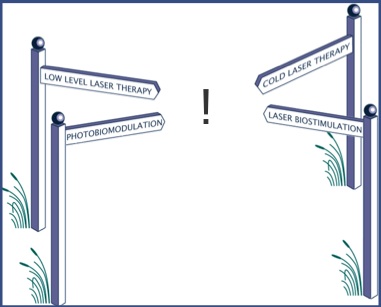 At the NZ2008 laser meeting we debated LLLT nomenclature, many scientists prefer to call it Photobiomodulation (and I agree this is the best name). Laser Biostimulation was used for some time by the American Society for Lasers in Surgery and Medicine, who recently adopted Photobiomodulation instead. Pubmed have chosen LLLT (stands for Low Level Laser Therapy) as the MeSH term (MeSH stands for Medical Subject Heading) however they have used that label for almost every form of medical laser treatment (low level or otherwise). Low Level Laser Therapy was a term coined by Oshiro and Calderhead back on the 1980’s.
At the NZ2008 laser meeting we debated LLLT nomenclature, many scientists prefer to call it Photobiomodulation (and I agree this is the best name). Laser Biostimulation was used for some time by the American Society for Lasers in Surgery and Medicine, who recently adopted Photobiomodulation instead. Pubmed have chosen LLLT (stands for Low Level Laser Therapy) as the MeSH term (MeSH stands for Medical Subject Heading) however they have used that label for almost every form of medical laser treatment (low level or otherwise). Low Level Laser Therapy was a term coined by Oshiro and Calderhead back on the 1980’s.
Here are some words and phrases I have collected over the years:
Bioregulating Laser
Biostimulating Laser
Broad Band Radiation Therapy
Class IV laser Therapy
Cold Laser Therapy
Diode Laser Therapy
He-Ne Laser therapy
Helium-neon laser irradiation
HILT (High Intensity Laser Therapy)
… Continue reading
Posted in Rants
on LLLT nomenclature: Cold Low Energy level Laser Soft Therapy Photobiomodulation Phototherapy – Whats in a name ?
LLLT Low level cold class IV laser therapy. Treat the skin directly, preferably in contact (or very close).
oh dear, I hope that none of this audience (you) are attempting to treat through clothing. Light does not go through clothing very well (if at all). You must treat the skin directly, preferably in contact (or very close).
These examples will not work
Posted in Rants
on LLLT Low level cold class IV laser therapy. Treat the skin directly, preferably in contact (or very close).
THOR Literature watch for November 2013 Low Level Laser Therapy / Cold Laser / Photobiomodulation PBM
43 LLLT papers for you this month including: Three systematic reviews with meta-analysis on LLLT 1) before, during and after exercises, 2) frozen shoulder/adhesive capsulitis, 3) subacromial impingement syndrome. ALSO a trial showing increased muscle torque in elite athletes, reduced oral mucositis in pediatric cancer patients, LED for TMJ dysfunction, Laser vs LED dentin hypersensitivity, combined autologous PRP and LED for venous ulcers, LED after eccentric exercise (it seems to be a big month for LEDs ) and delightful editorial from Kevin Moore on the early years for LLLT and the World Association for Laser Therapy (WALT).
Posted in Research
on THOR Literature watch for November 2013 Low Level Laser Therapy / Cold Laser / Photobiomodulation PBM
Kadhim-Saleh laser neck pain review conclusion incorrect. LLLT is clinically effective
Last October a systematic review on LLLT for neck pain was written by Kadhim-Saleh et al and published in the British Journal of Sports Medicine. They report that the evidence for LLLT in neck pain is inconclusive. The paper criticises the 2009 Lancet review by Roberta Chow & Bjordal et al on LLLT for non-specific neck pain claiming their review was more stringent. Well you have to read the rebuttal Bjordal shot back to the journal editor revealing the weakness, errors and fundamental flaws in the work of Kadhim-Saleh et al
Posted in Rants
8 Comments
LLLT Systematic reviews with meta-analysis are hard to do
LLLT Systematic reviews with meta-analysis are hard to do for all sorts of reasons:
1) LLLT has had a lot of different names (cold laser, laser biostimulation, photobiomodulation, low intensity laser laser therapy, LEDT, etc) so the literature search is hard (see my post on this from 2008, recently updated)
2) The authors need to have an advanced knowledge of the pathology in question.
3) The authors need to have an advanced knowledge of LLLT too, particularly the matter of irradiation parameters and dose*
4) Then the meta-analysis requires a high degree of competence with medical statistics
* So we should not be surprised when someone who looks at a broad range of interventions for a pathology with limited knowledge of LLLT struggles (and often fails) to stratify the data by effective irradiation parameters (wavelength, power, beam area, irradiance, pulses), dose (time, energy, fluence), treatment location, number of treatments and interval between treatments.
It may be that LLLT is not a suitable intervention for the pathology in question but if LLLT appears to be effective sometimes and not others … Continue reading
Posted in Rants
on LLLT Systematic reviews with meta-analysis are hard to do
 Featured Testimonials
Featured Testimonials